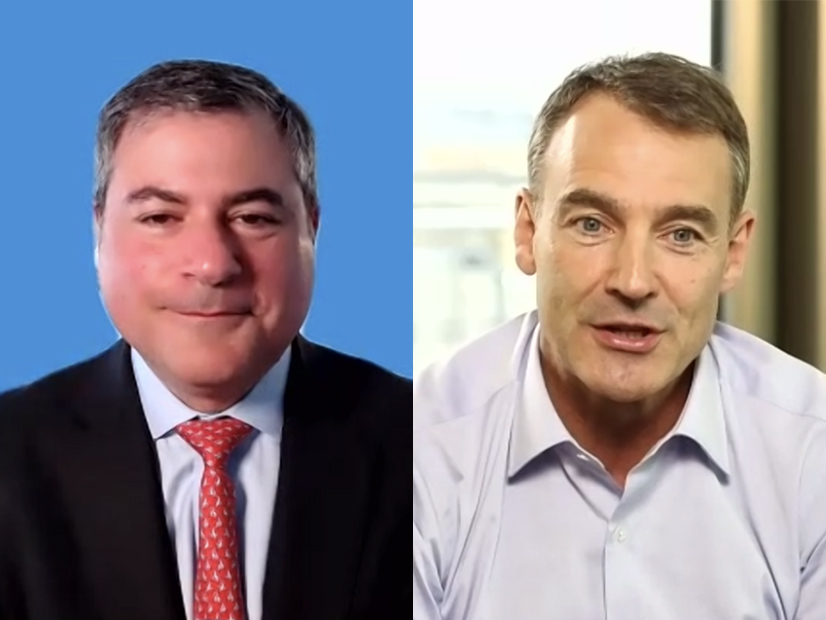This time, Bernard Looney insists, BP really does intend to move “Beyond Petroleum.”
Shortly after becoming the international oil company’s CEO in February 2020, Looney announced a strategy to transition it to an integrated energy company and to become net zero in emissions by 2050 or sooner.
“The world does have a carbon budget, it’s finite, and I think we’d all agree that it is running out… [and] society, including our employees, they want us to change, and they need us to change,” Looney said at Columbia University’s Center on Global Energy Policy (CGEP) Energy Summit Wednesday.
The company’s 2020 announcement included a pledge to reach net zero on carbon across its operations and its oil and gas production by 2050, while also reducing the carbon intensity of the products it sells by 50%.
Less Than Meets the Eye?
But the Transition Pathway Initiative, an investor-led group that tracks corporate climate plans, reported in May 2020 that none of the promises by BP and other oil giants were consistent with the Paris Agreement’s goal of limiting warming to below 2 degrees Celsius from pre-industrial times.
It also said BP’s pledge was less ambitious than its peers, covering only 51% of its externally sold energy. BP’s pledge to reduce the carbon intensity of the products it sells by 50% is its most significant commitment, TPI said. “However, with trading/supply and crude oil sales not covered by this commitment, BP’s overall emissions intensity only falls 20.5% by 2050.”
Other critics recall the fanfare with which the company adopted the slogan “Beyond Petroleum” in 2000. Greenpeace gave the company its first “Emerald Paintbrush” award for greenwashing in 2009 after the company shut down its wind and solar generation division. Greenpeace said 93% of the company’s investments were in oil and gas at the time.
Reuters reported this week that BP has lobbied for the European Union to continue supporting new natural gas plants, arguing that it was necessary for the shift away from coal.
IEA Report
Jason Bordoff, dean of the Climate School at Columbia University and founding director of the CGEP, didn’t ask Looney about that criticism in an interview with the CEO Wednesday. But he did cite the report issued by the International Energy Agency (IEA) this week that said achieving net zero emissions by mid-century would mean no new investments in fossil fuel supply. (See IEA Paints Daunting Path to Net Zero by 2050.)
“In 2050 oil and gas use are not zero, but obviously much lower than today, about a quarter of today’s oil use and less than half its gas use,” said Bordoff.
“Is that the world BP is planning for, and are you on board with it?” he asked Looney.
A few things stood out in the report, Looney said, including “an unprecedented jump in low-carbon spending, from $2 trillion a year to $5 trillion a year. That plays right into our strategy.”
One reason the company decided to pivot toward clean energy and climate goals is that “it’s an enormous business opportunity,” Looney said. “Trillions of dollars are going to get spent rewiring and replumbing the earth’s energy system. It’s a hard, complex problem to solve, and quite frankly we love that complexity because in many ways it’s what we’re built for.”
Indeed, the company announced last week it was partnering with Mexico’s Cemex to decarbonize the cement production process.
‘Responsibility to Lead’
Looney said that the world will continue investing significant amounts in oil and gas, “about $170 billion per annum in the 2040-plus period,” which he said is consistent with BP’s plans “to reduce oil and gas production by 40% within the next decade.”
The IEA report “is a scenario on a piece of paper, and what the world needs more than anything is maybe less scenarios and less debate, and more action, and that’s what we’re intent on doing,” Looney said.
Bordoff asked if BP’s reduced production targets meant that the company would no longer be investing in new oil fields.
“The carbon that’s liberated from the hydrocarbons that we introduce … we want to bring that down, we want to bring the absolute emissions of that down by between 35% and 40% by 2030,” Looney said. “And part of that means that we will produce 40% less oil and gas by 2030. It’s quite a unique part of our strategy, not something other companies have come out with. We think it’s the right thing to do, and right for our shareholders and investors because we want to be the best-run hydrocarbons business, not the biggest.”
Upstream spending has fallen from up to $19 billion annually to between $7 and $8 billion in 2021, he said.
Bordoff asked whether BP was concerned about losing money by being “ahead of the curve” with society’s environmental goals.
“Let’s take the example of hydrogen trucking in Germany,” Looney said. “I was talking to Ola Källenius, the CEO of Daimler, just a few weeks ago, and he was saying if you want to drive a 40-ton truck up a hill, that’s a lot of batteries. His view, and we would support it, is that hydrogen is going to be a solution in heavy duty transport.”
Daimler’s not going to build a hydrogen truck until there’s a customer for one, and no one will want a hydrogen truck until they know they can refuel it, and BP isn’t going to build a hydrogen network in Germany until it knows there are customers that will use it, he said.
“If we just said we’re going to do this in step with society, we’re stuck, because nobody moves,” Looney said. “We have a responsibility to lead, to pull people together, pull customers and OEMs and ourselves together and take what is otherwise an intractable problem and actually move it forward in a way that progresses the transition and equally doesn’t destroy value for our shareholders.”




